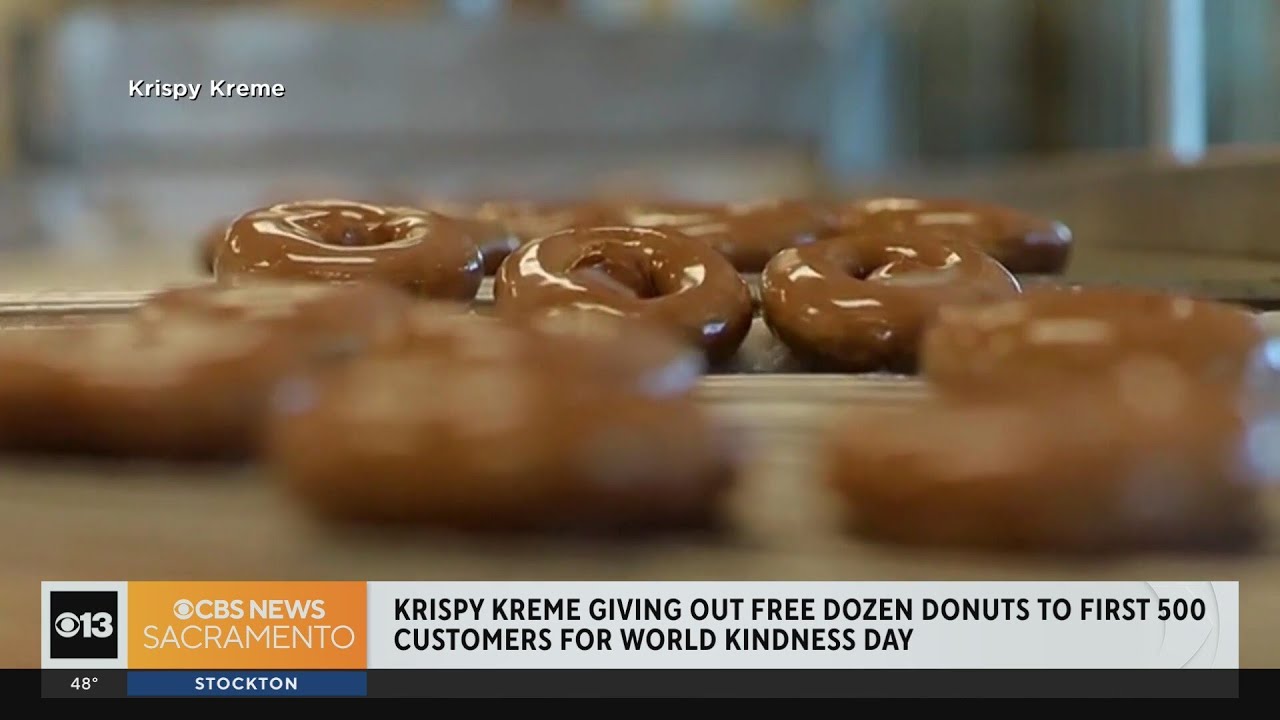Inflation is fueling free offers at chains like McDonald’s, Wendy’s and Domino’s, but these companies still often make money off you in other ways.
Free doughnuts, anyone?
Krispy Kreme (DNUT) is giving away a dozen of its original glazed doughnuts to the first 500 customers at each of its stores on Monday as a way to mark World Kindness Day.
This is just one of many freebies being offered by restaurant chains these days, although some of the deals come with strings attached.
Wendy’s WEN recently went viral for offering a free six-piece order of chicken nuggets every Wednesday from now through the end of the year — along with the purchase of any other item. “Free Fries Friday” is also back at McDonald’s MCD, where you get a free medium-sized French fries order with any $1 purchase on the restaurant’s app.
And Domino’s (DPZ) recently announced a free “emergency” pizza offer to use “whenever you need it most,” although it also requires a qualifying online order.
Add it up, and we’re likely talking free grub worth millions of dollars. And that’s on top of many regular discounts and deals that restaurants, especially fast-food ones, are currently offering.
Deals are often about getting customers to use the restaurant chain’s apps … and digital-based customers tend to place bigger orders — sometimes as much as 20% bigger.
What’s fueling the freebie wave? Not surprisingly, industry experts say that inflation has played a significant role: People are literally hungry for a bargain — and there’s no better bargain than something free.
“Consumers are seeking out value today more than they were a year ago or two years ago,” veteran fast-food analyst Mark Kalinowski told MarketWatch.
That’s on top of the fact that the deals are often about getting customers to use the restaurant chain’s apps, Kalinowkski and others said. Dining companies are eager to bring business to their digital platforms, because they serve as a valuable ongoing marketing tool — meaning the companies can more easily engage with customers on a regular basis once the diners have downloaded the apps.
Plus, Kalinowski said that digital-based customers tend to place bigger orders — sometimes as much as 20% bigger than those showing up in-person.
‘We’re making the bet that our generosity will be valued and rewarded.’ Dave Skena, Krispy Kreme’s chief global brand officer
Krispy Kreme is a bit of an outlier, however. Krispy Kreme’s World Kindness Day offer doesn’t require customers to use the company’s app. And it’s one of many freebie offers the doughnut chain has done over the years.
During the height of the pandemic, for example, Krispy Kreme was giving away a doughnut to any customer who showed a COVID-19 vaccination card. That pandemic promotion alone resulted in 125,000 sugary treats being handed out during the promotion’s first 96 hours, the company said.
Then again, Krispy Kreme often gives away doughnuts even if there’s no promotion in place. But the bottom line is that there’s still a bottom line to the freebie train: Dave Skena, the company’s chief global brand officer, told MarketWatch the hope is that the happy feelings generated will result in future — and yes, paying — visits.
“We’re making the bet that our generosity will be valued and rewarded,” Skena said.
But freebie promotions can sometimes backfire on a company, warned Craig Agranoff, a marketing professional based in Boca Raton, Fla.
He cites one famous example: In 1984, McDonald’s offered its customers free food every time the U.S. earned a medal at the Summer Olympics. That alone might have resulted in a sizable number of giveaways, but when the Soviet Union boycotted the games that year, the U.S. had an even bigger medals showing , which resulted in many more freebies than McDonald’s likely anticipated.
“It took a significant financial hit,” said Agranoff. McDonald’s didn’t immediately reply to a MarketWatch request for comment.
Agranoff added that companies generally know what they’re doing — and it’s no surprise the “freebies” often require a purchase of some kind.
“You always have to read the fine print,” Agranoff said.
-Charles Passy
This content was created by MarketWatch, which is operated by Dow Jones & Co. MarketWatch is published independently from Dow Jones Newswires and The Wall Street Journal.

